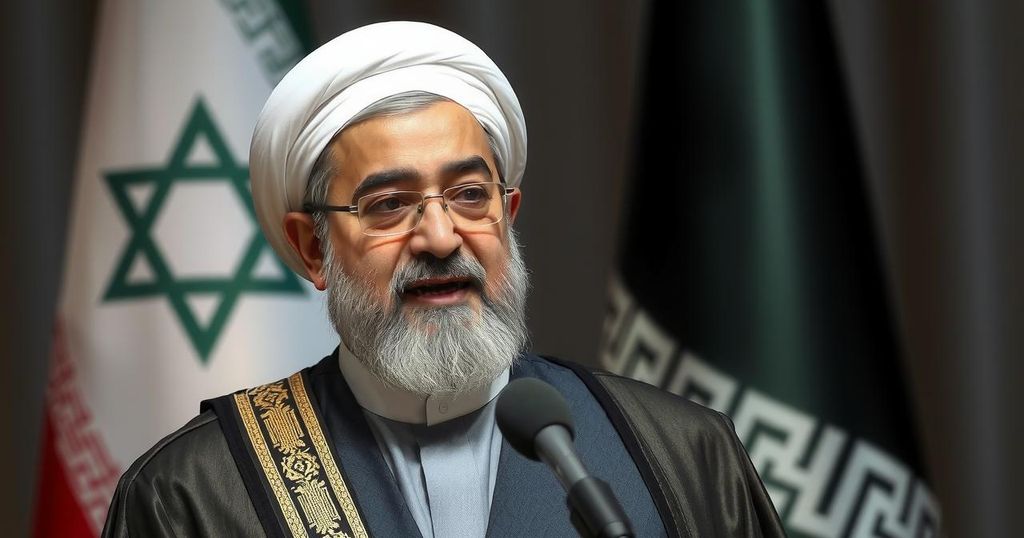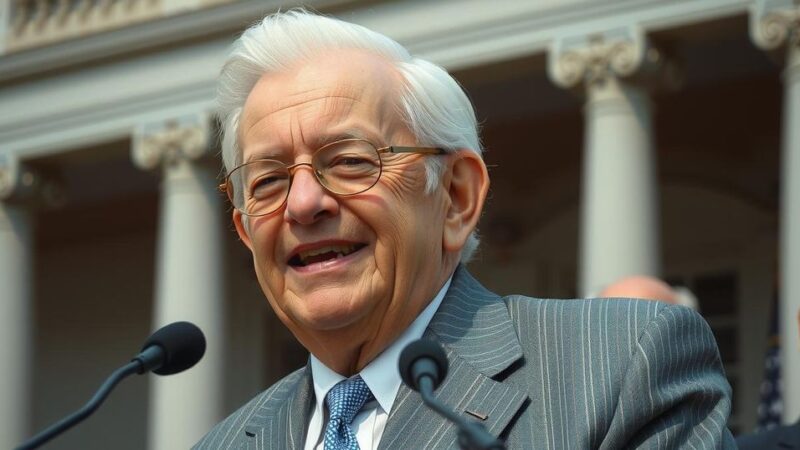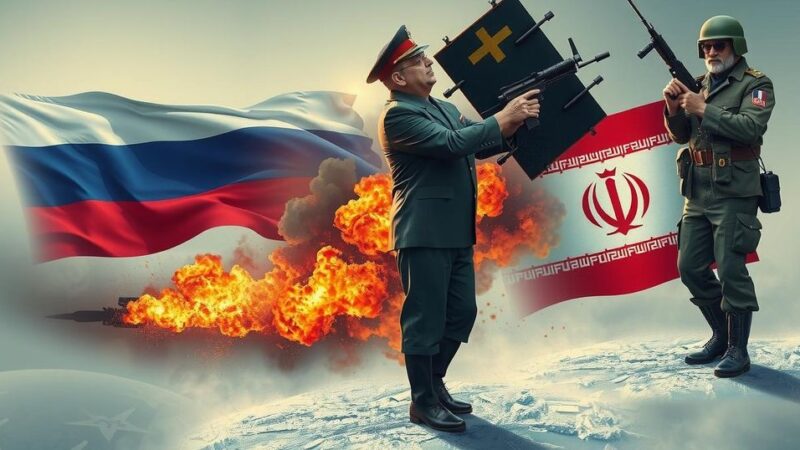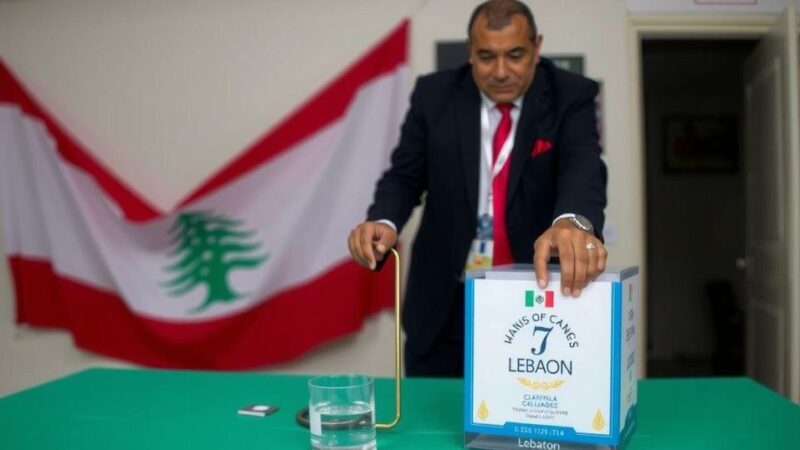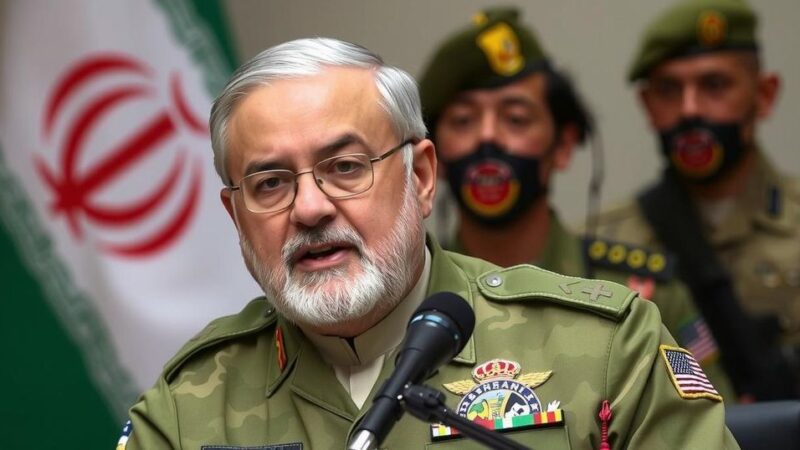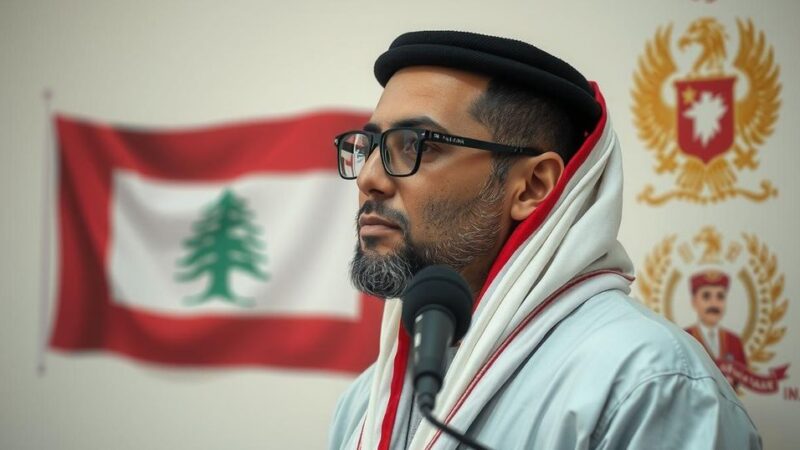Iranian President Masoud Pezeshkian has called for Israel’s withdrawal from occupied Syrian territories in a meeting with Iraqi Prime Minister Mohammed Shia al-Sudani. This demand follows the political upheaval in Syria after the fall of Bashar al-Assad. Iran aims to promote respect for Shia religious sites and regional autonomy amid ongoing Israeli military actions and U.S. troop presence in Iraq.
In a recent address to Iraq’s Prime Minister Mohammed Shia al-Sudani in Tehran, Iranian President Masoud Pezeshkian emphasized the urgent necessity for Israel to withdraw from occupied Syrian territories. This conversation occurred against the backdrop of significant political shifts following the fall of Syrian President Bashar al-Assad, a long-time ally of Tehran. Pezeshkian articulated concerns regarding the respect for religious sentiments in Syria, particularly in relation to Shia holy sites.
During the joint briefing, Pezeshkian remarked on the critical nature of respecting the religious sentiments in Syria. He underscored Iran’s condemnation of Israel’s actions and reiterated the demand for an Israeli withdrawal from these regions. Concurrently, Iran’s supreme leader, Ayatollah Ali Khamenei, met with Sudani and highlighted the detrimental roles of foreign governments in Syrian affairs, as reported by the state-run news agency IRNA.
The geopolitical dynamics have intensified following the takeover of Damascus by the Sunni Islamist group, Hayat Tahrir al-Sham (HTS), a move that prompted the hasty departure of Assad. In response, Israel has engaged in numerous aerial assaults targeting military installations in Syria, asserting that these operations are designed to thwart the dissemination of advanced armaments. Furthermore, Israeli forces maintain control over strategic zones in a United Nations-monitored buffer area adjoining the Golan Heights, which were claimed from Syria during the 1967 war.
In the discussions, Sudani acknowledged Iraq’s commitment to respecting the autonomy of the Syrian populace, reiterating that Iraq supports a political framework chosen organically by the Syrian people without external intervention. Khamenei also addressed the matter of U.S. military presence in Iraq, urging resistance against foreign troops as part of broader anti-terrorism agreements.
The discourse surrounding Israel’s presence in Syrian territory is steeped in historical and political complexity, rooted in the territorial disputes that followed the Arab-Israeli conflicts. Since the 1967 war, Israel has occupied the Golan Heights, a strategic plateau that holds significant military and political importance. The current instability in Syria, exacerbated by the civil war and the emergence of various militant groups, has led to increasing tensions among regional powers, including Iran, Iraq, and Israel, each vying for influence amid shifting alliances.
The calls made by Iranian leadership for Israel’s withdrawal from Syrian territories reflect ongoing regional tensions that have been significantly magnified by the recent political landscape in Syria. Iran’s advocacy for the respect of religious sites and the autonomy of the Syrian populace underscores its strategic interests in maintaining influence within Syria. Moreover, the remarks by Iraqi Prime Minister Mohammed Shia al-Sudani reinforce Iraq’s position on non-interference and support for a sovereign political process driven by the Syrian people.
Original Source: www.newarab.com

